University certificate
Scientific endorser
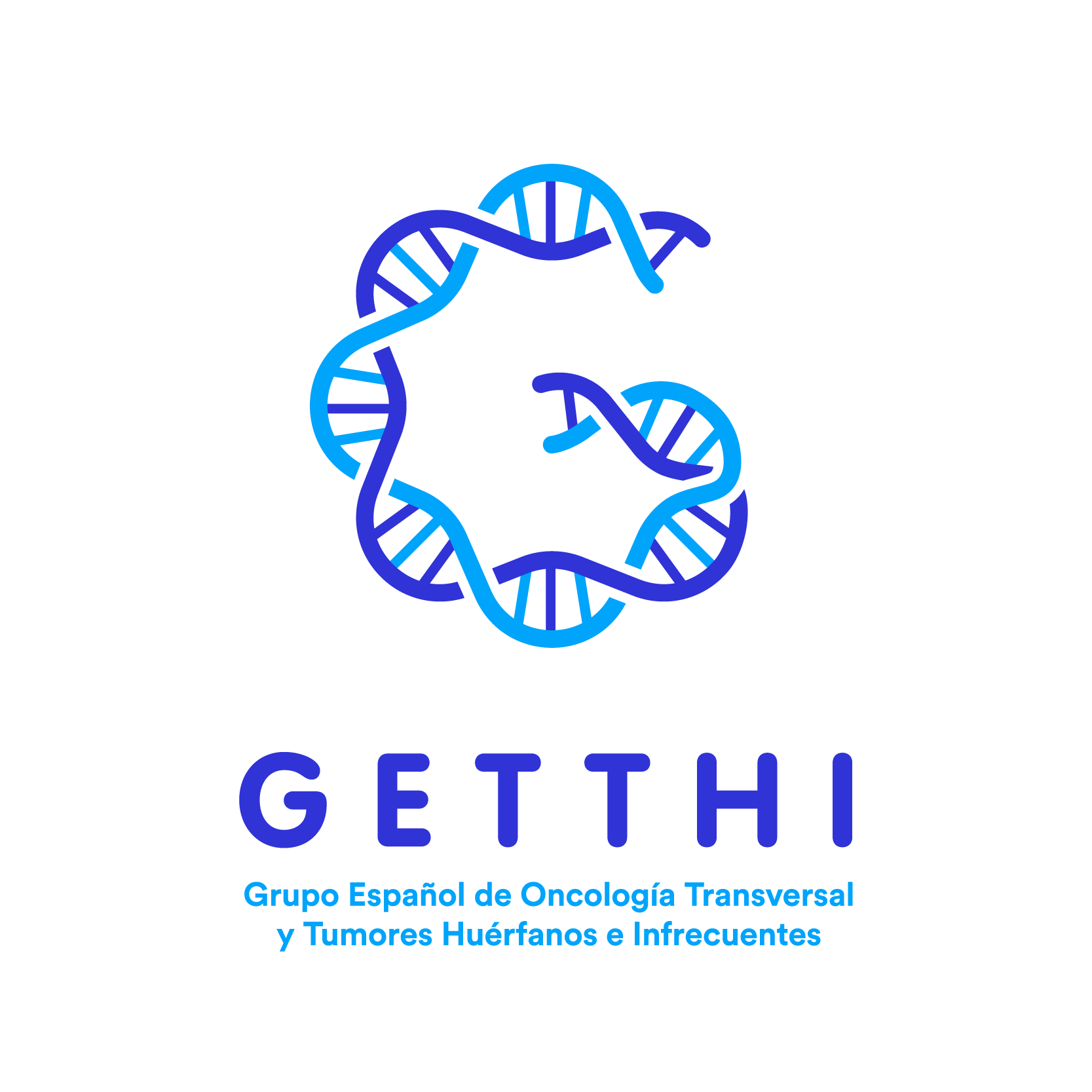
The world's largest faculty of medicine”
Description
With this professional master’s degree you will delve into the latest scientific findings in circulating biomarkers and tissue molecular markers”
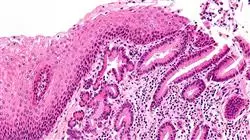
The life expectancy of patients with digestive system tumors has increased considerably in recent years. But where this improvement has been most noticeable is in colon tumors. Early detection, more efficient surgery and more precise treatment have been the main reasons for this progress. However, the complexity involved in managing these tumors is a challenge for medical professionals, who must keep pace with advances in surgical techniques, molecular biology and radiotherapy therapies.
This professional master’s degree has been designed in response to the need for doctors to keep up to date, and is taught by a multidisciplinary teaching staff with experience in dealing with oncology patients. The program follows a syllabus that takes a theoretical-practical approach to the knowledge of new standards, the introduction of new treatments and the ability to recognize cases where it is necessary to cooperate with more complex care centers.
A program where students have at their disposal innovative educational material consisting of video summaries, detailed videos, interactive summaries so they can study molecular biology and translational oncology, digestive tract tumors, pancreatic cancer, biliary tract tumors and hepatocarcinoma in depth over the course of 12 months. What is more, the program includes practical case simulations that will prove helpful to professionals who wish to become aware of real situations and how to invervene based on the experience and knowledge of our teaching team.
TECH offers an excellent opportunity for specialists who seek to obtain quality education compatible with their work and personal responsibilities. Students only need an electronic device (computer, tablet or cell phone) to access the entire syllabus on the virtual platform. There is no need for attendance or sessions with fixed schedules, physicians can connect whenever it suits them. This flexibility is provided so that students can update their knowledge with the most agile and convenient methodology.
A high-level education designed so that professionals like you can balance their professional practice with their academic updating”
This professional master’s degree in Digestive System Oncology contains the most complete and up-to-date scientific program on the market. The most important features of the program include:
- Diagnostic-therapeutic developments in the assessment, diagnosis, and intervention in Digestive System Oncology
- Contains practical exercises where the self-evaluation process can be carried out to improve learning
- Iconography of clinical and diagnostic imaging tests
- An algorithm-based interactive learning system for decision-making in the clinical situations presented throughout the course
- With special emphasis on evidence-based medicine and research methodologies in Digestive System Oncology
- All of this will be complemented by theoretical lessons, questions to the expert, debate forums on controversial topics, and individual reflection assignments
- Content that is accessible from any fixed or portable device with an Internet connection
The library of multimedia resources will provide contextual and situated study where learning will be much more effective”
The program’s teaching staff includes professionals from the sector who contribute their work experience to this training program, as well as renowned specialists from leading societies and prestigious universities.
The multimedia content, developed with the latest educational technology, will provide the professional with situated and contextual learning, i.e., a simulated environment that will provide immersive specialization programmed to learn in real situations.
This program is designed around Problem-Based Learning, whereby the professional must try to solve the different professional practice situations that arise throughout the program. For this purpose, the student will be assisted by an innovative interactive video system created by renowned and experienced experts.
Delve into new scientific findings on the role of the immune response in digestive cancer control with this professional master’s degree"
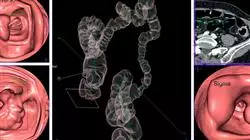
Delve into the most effective approach to neoadjuvant and adjuvant treatment in gastric cancer with this program"
Objectives
The main objective of this professional master’s degree is to update medical professionals through multimedia content, which reflects the most relevant aspects in the field of Digestive System Oncology. At the end of this course, students will be updated on the different patient immune response to treatments depending on the stage of the disease, the most appropriate treatment for a patient with esophageal and stomach cancer or the expansion of knowledge of adjuvant and neoadjuvant treatment of colon and rectal cancer.
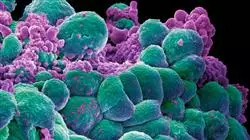
A program that will allow you to delve into the usefulness, novelties and performance of PET/CT with F18-FDG in diagnosis”
General Objective
- Create a global and up-to-date vision of Digestive System Oncology and all its aspects, allowing students to acquire useful knowledge and, at the same time, generate interest in expanding information and discovering its application in daily practice
- Provide and expand knowledge on immunotherapy, as an example of a clear scientific advance in translational research, and one of the most promising lines of research in cancer treatment
- Discuss the current landscape of stomach cancer immunotherapy, combinations in clinical development, strategies for dose selection and trial design, clinical pharmacology, and regulatory considerations
Specific Objectives
Module 1. Molecular Biology and Translational Oncology
- Update knowledge in the molecular biology of cancer, especially in relation to the concept of genetic heterogeneity
- Expand knowledge on microenvironment reprogramming in digestive tumors, the role of the immune response in cancer control, circulating biomarkers and tissue molecular markers
Module 2. Upper Gastrointestinal Tract Tumors
- Review the performance and usefulness of each of the tests used in the diagnosis of esophageal and gastric tumors
- Describe the usefulness and performance of PET/CT with F18-FDG in the diagnosis, staging, treatment control and monitoring of esophageal tumors
- Describe the evolution of surgical techniques up to minimally invasive and robotic surgery that allow complex interventions to be performed with small incisions, preserving tissues as much as possible, accelerating recovery and providing less discomfort
- Update knowledge on adjuvant and neoadjuvant management of esophageal and gastric cancer
- Know the National Registry of Advanced Gastric Cancer (AGAMENON)
- Develop appropriate treatment plans for patients with esophageal and gastric cancer that has progressed after initial treatment
- Determine the positioning of antiangiogenic agents to treat stomach cancer
Module 3. Lower Gastrointestinal Tract Tumors
- Know the screening program for colon and rectal cancer and estimate the population susceptible to be screened in Spain and by autonomous community
- Analyze the effectiveness of different tests proposed for colon and rectal cancer screening
- Update knowledge on the molecular biology of colon cancer and its impact on classification and treatment
Module 4. Other Digestive System Tumors
- Learn the new therapeutic arsenal used to manage the main comorbidities of patients with digestive tumors
- Know the therapeutic objectives in order to avoid poor control, therapeutic interactions or overtreatment
Module 5. Pancreatic Cancer, Biliary Tract Tumors and Hepatocarcinoma
- Define the epidemiology, risk factors and diagnosis of pancreatic cancer and hepatocarcinoma and their value in clinical practice
- Delve into the imaging tests for the diagnosis and staging of pancreas cancer Discuss the multidisciplinary management of pancreatic, biliary tract and hepatocarcinoma cancer and future treatment options
- Discuss the role of surgery for pancreatic, biliary tract and hepatocarcinoma cancers
- Update treatment of advanced pancreatic, biliary tract and hepatocarcinoma cancer
Module 6. Collaboration in the Management of Oncology Patients
- Assess the impact of age on patient prognosis and treatment outcomes
- Raise awareness as to how excellent care must be continuous and move toward integrated care models including other specialists, particulary in primary care
- Explain the Enhanced Support Care strategy, developed by the Christie NHS Trust, to better adapt patient care to the changing landscape of cancer
Module 7. From Clinical Management to Networking
- Describe the advantages of the collaborative world that will help to network and improve clinical management
- Describe the vision of the emergency physician and how the detection of frequenters is a sign that can help improve the organizational model
- Explain the different online platforms available that can help us to follow up patients and create a professional network
- Learn the basics of decision support systems that facilitate decision making in complex contexts
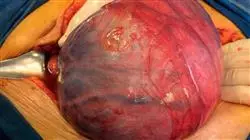
You will get to update your knowledge more easily thanks to multimedia resources that you can access 24 hours a day”
Professional Master's Degree in Digestive Oncology
The Professional Master's Degree in Digestive Oncology is an academic program designed for medical professionals who wish to specialize in the diagnosis and treatment of digestive cancer. This program offers complete and up-to-date training in the latest techniques and advances in the investigation and treatment of cancers such as esophageal, stomach, liver, pancreatic, small bowel, colon and rectal cancers. Digestive oncology is a discipline in constant evolution due to the continuous investigation of the mechanisms that trigger cancer. The Professional Master's Degree in Digestive Oncology at TECH Global University focuses on providing comprehensive training in the different areas involved in digestive oncology, such as surgery, medical oncology, radiotherapy and clinical research. This Professional Master's Degree in Digestive Oncology aims to offer rigorous research in the prevention, early detection, diagnosis and treatment of different types of digestive cancer. It also seeks that professionals are able to evaluate and follow up patients with these pathologies, providing a comprehensive and personalized treatment.
Study 100% online and take your career to another level.
Through the Professional Master's Degree in Digestive Oncology, the program addresses relevant topics such as epidemiology, biomarkers, molecular diagnosis and imaging techniques, as well as advances in surgery, radiotherapy and chemotherapy. Special attention is also paid to ethical and legal aspects in oncological care. The program is aimed at physicians specializing in gastroenterology, oncology, surgery, radiotherapy and other medical disciplines related to digestive oncology. It is also suitable for digestive disease professionals with an interest in oncology research. The Professional Master's Degree in Digestive Oncology, provides a complete and updated training in the latest techniques and advances in the research and treatment of different types of digestive cancer, allowing professionals in the medical sector a specialization of the highest quality. At TECH we have real examples to solve, which will put you to the test while you study with us, take advantage of the opportunity.







